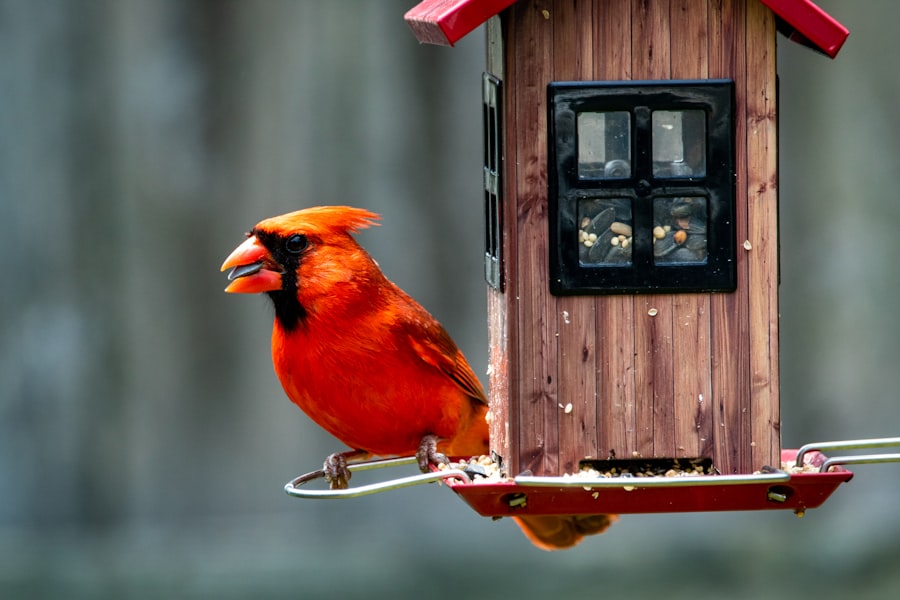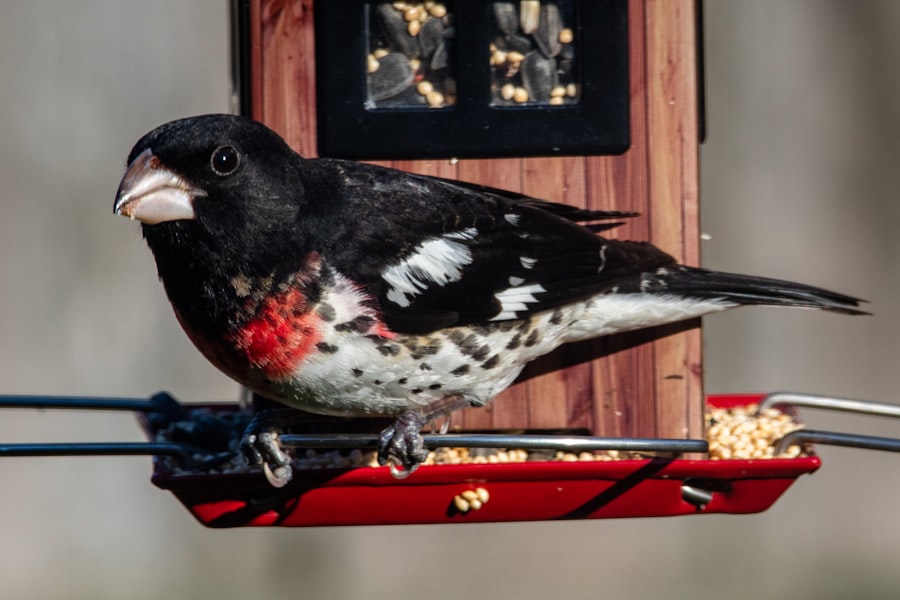Raising chickens at home has gained popularity in recent years due to increased interest in sustainable living and self-sufficiency. Chickens provide fresh eggs, serve as pets, and assist with pest control in gardens. This practice can be implemented in both rural and urban settings, offering a rewarding experience for individuals and families.
Before starting a chicken-keeping endeavor, it is essential to conduct thorough research and preparation. Important considerations include selecting an appropriate chicken coop, ensuring proper nutrition, and addressing healthcare needs. Home chicken raising can be an educational and fulfilling activity for families.
In addition to providing a sustainable egg source, chickens offer companionship and entertainment. Many individuals find chicken care to be a therapeutic and calming pursuit, allowing for a connection with nature and engagement in a hands-on hobby. This activity can also teach children about responsibility, animal care, and life cycles.
With proper knowledge and resources, individuals can successfully maintain a small flock of chickens in their backyard or on a homestead. This practice combines practical benefits with personal enjoyment, making it an attractive option for those interested in sustainable living and animal husbandry.
Table of Contents
- 1 Choosing the Right Chicken Coop
- 2 Feeding and Watering Your Chickens
- 3 Providing Enrichment and Entertainment
- 4 Health and Wellness for Your Chickens
- 5 Dealing with Predators and Pests
- 6 Building a Community around Keeping Chickens
- 7 FAQs
- 7.1 What are the benefits of keeping chickens close to home?
- 7.2 What are some important considerations for keeping chickens close to home?
- 7.3 What are some tips for keeping chickens close to home?
- 7.4 What are some common challenges of keeping chickens close to home?
- 7.5 What are some popular chicken breeds for keeping close to home?
Key Takeaways
- Keeping chickens at home can be a rewarding and sustainable hobby for many people.
- Choosing the right chicken coop is essential for the health and safety of your chickens.
- Proper feeding and watering of your chickens is crucial for their well-being and egg production.
- Providing enrichment and entertainment for your chickens can help prevent boredom and stress.
- Regular health check-ups and proper care are essential for the overall wellness of your chickens.
Choosing the Right Chicken Coop
Choosing the Right Chicken Coop
When it comes to keeping chickens at home, providing a safe and comfortable living environment is crucial. This starts with selecting the right chicken coop, which will serve as their shelter and nesting area. Several factors should be considered when choosing a chicken coop, including the size of your flock, the climate in your area, and any local regulations or restrictions.
Coop Size and Features
The coop should be spacious enough to allow each chicken to have at least 2-3 square feet of space, with plenty of room for roosting and nesting. It should also be well-ventilated and provide protection from predators and the elements. A good coop should have features such as nesting boxes, roosting bars, and easy access for cleaning.
Pre-Made vs. DIY Coops
When it comes to choosing the right chicken coop, there are several options to consider. Some people opt for pre-made coops that can be purchased from farm supply stores or online retailers. These coops come in a variety of sizes and styles, and often include features such as nesting boxes, roosting bars, and easy access for cleaning. Alternatively, some chicken keepers prefer to build their own coop from scratch, using plans and materials found online or at their local hardware store. This allows for more customization and can be a cost-effective option for those who are handy with tools.
Feeding and Watering Your Chickens

Proper nutrition is essential for keeping chickens healthy and productive. A well-balanced diet will not only ensure that your chickens lay high-quality eggs, but it will also support their overall health and well-being. When it comes to feeding your chickens, it’s important to provide them with a good quality commercial feed that is specifically formulated for laying hens.
This feed should contain a balanced mix of protein, vitamins, minerals, and other essential nutrients. In addition to commercial feed, chickens can also benefit from supplemental treats such as fruits, vegetables, grains, and mealworms. It’s important to offer these treats in moderation, as too many can upset the balance of their diet.
In addition to providing proper nutrition, it’s important to ensure that your chickens have access to clean and fresh water at all times. Chickens require a constant supply of water to stay hydrated and healthy, especially during hot weather or when they are laying eggs. It’s important to regularly clean and refill their water containers to prevent the growth of bacteria and algae.
Some chicken keepers opt for automatic waterers or nipple drinkers, which can help ensure that their chickens always have access to water. Additionally, it’s important to consider the placement of water containers within the coop or run to prevent spillage and contamination.
Providing Enrichment and Entertainment
Chickens are intelligent and social animals that benefit from mental stimulation and physical activity. Providing enrichment and entertainment for your chickens can help prevent boredom and reduce stress, leading to happier and healthier birds. There are many simple ways to enrich your chickens’ environment, such as providing perches for roosting, dust bathing areas, and access to fresh grass or pasture.
Additionally, hanging treats or toys such as cabbage heads or suet feeders can provide hours of entertainment for your flock. Another way to provide enrichment for your chickens is by allowing them access to a larger outdoor area where they can forage and explore. This can be achieved by using a chicken run or by allowing your chickens to free-range in a fenced-in area.
Allowing your chickens to roam freely not only provides them with access to fresh grass and insects but also allows them to exhibit natural behaviors such as scratching, pecking, and dust bathing. However, it’s important to ensure that the outdoor area is secure and protected from predators.
Health and Wellness for Your Chickens
Just like any other pet or livestock animal, it’s important to prioritize the health and wellness of your chickens. Regular health checks and preventative care can help ensure that your flock remains happy and productive. One of the most important aspects of chicken health is disease prevention.
This can be achieved through good hygiene practices, such as regularly cleaning the coop, removing soiled bedding, and disinfecting feeders and waterers. Additionally, it’s important to monitor your chickens for any signs of illness or injury, such as changes in behavior, decreased egg production, or abnormal physical symptoms. In addition to disease prevention, it’s important to provide regular veterinary care for your chickens.
This may include vaccinations against common poultry diseases such as Marek’s disease or Newcastle disease. It’s also important to have a plan in place for treating common ailments such as parasites or respiratory infections. Many chicken keepers find it helpful to establish a relationship with a veterinarian who is knowledgeable about poultry care and can provide guidance on preventative measures and treatment options.
Dealing with Predators and Pests

Common Predators and Threats
One of the biggest challenges of keeping chickens at home is protecting them from predators and pests. Common predators that pose a threat to chickens include raccoons, foxes, hawks, snakes, and even domestic dogs or cats.
Securing Your Coop and Run
It’s important to take proactive measures to secure your coop and run against potential threats. This may include using hardware cloth or welded wire fencing to reinforce the perimeter of the coop, installing predator-proof latches on doors and windows, and using motion-activated lights or sound devices to deter nocturnal predators.
Controlling Pests and Parasites
In addition to predators, chickens are also susceptible to pests such as mites, lice, and worms. Regularly inspecting your chickens for signs of infestation, such as feather loss or irritation, can help prevent these pests from becoming a problem. There are many natural remedies and preventative measures that can be used to control pests in the chicken coop, such as diatomaceous earth or herbal supplements. It’s important to regularly clean and sanitize the coop to prevent the buildup of pests and parasites.
Building a Community around Keeping Chickens
Keeping chickens at home can be a great way to connect with like-minded individuals in your community who share an interest in sustainable living and animal husbandry. Building a community around keeping chickens can provide opportunities for learning, sharing resources, and forming friendships with other chicken keepers. Many communities have local poultry clubs or organizations that host events such as breed swaps, educational workshops, or poultry shows.
These events can be a great way to network with other chicken enthusiasts and learn from experienced breeders. In addition to local clubs or organizations, there are many online communities and forums dedicated to chicken keeping where individuals can connect with others from around the world who share their passion for raising chickens. These online communities provide a platform for asking questions, sharing advice, and discussing common challenges or successes related to chicken keeping.
Whether you’re a beginner or an experienced chicken keeper, building a community around keeping chickens can provide valuable support and camaraderie as you navigate the joys and challenges of raising poultry at home. In conclusion, keeping chickens at home can be a rewarding and enriching experience for individuals and families alike. From choosing the right chicken coop to providing proper nutrition and healthcare, there are many factors to consider when embarking on this journey.
By prioritizing the health and well-being of your flock, taking proactive measures against predators and pests, and building a community around keeping chickens, you can create a safe and enjoyable environment for your feathered friends while reaping the benefits of fresh eggs and companionship. Whether you’re new to chicken keeping or a seasoned pro, there is always something new to learn and discover in the world of backyard poultry farming.
If you’re interested in learning more about keeping chickens close to home, you might also want to check out this article on how to build a chicken coop with a trampoline. It offers a unique and creative way to provide a safe and comfortable living space for your feathered friends.
FAQs
What are the benefits of keeping chickens close to home?
Keeping chickens close to home can provide a sustainable source of fresh eggs, natural pest control for your garden, and a source of organic fertilizer for your plants.
What are some important considerations for keeping chickens close to home?
It’s important to consider local zoning laws, predator protection, proper waste management, and the availability of space and resources for the chickens.
What are some tips for keeping chickens close to home?
Some tips for keeping chickens close to home include providing a secure coop and run, offering a balanced diet, providing access to fresh water, and monitoring the health of the chickens regularly.
What are some common challenges of keeping chickens close to home?
Common challenges of keeping chickens close to home include predator attacks, disease management, waste management, and noise and odor control.
What are some popular chicken breeds for keeping close to home?
Popular chicken breeds for keeping close to home include Rhode Island Reds, Plymouth Rocks, Australorps, and Orpingtons, as they are known for their egg-laying abilities and docile temperaments.
Meet Walter, the feathered-friend fanatic of Florida! Nestled in the sunshine state, Walter struts through life with his feathered companions, clucking his way to happiness. With a coop that’s fancier than a five-star hotel, he’s the Don Juan of the chicken world. When he’s not teaching his hens to do the cha-cha, you’ll find him in a heated debate with his prized rooster, Sir Clucks-a-Lot. Walter’s poultry passion is no yolk; he’s the sunny-side-up guy you never knew you needed in your flock of friends!







